Global PR firm Edelman has released its new Edelman Trust Barometer research report, which measures the levels of trust people have in the institutions of business, government, NGOs and the media.
As you’d expect, after the year in which countries around the world were ravaged by COVID-19, trust has eroded on so many levels.
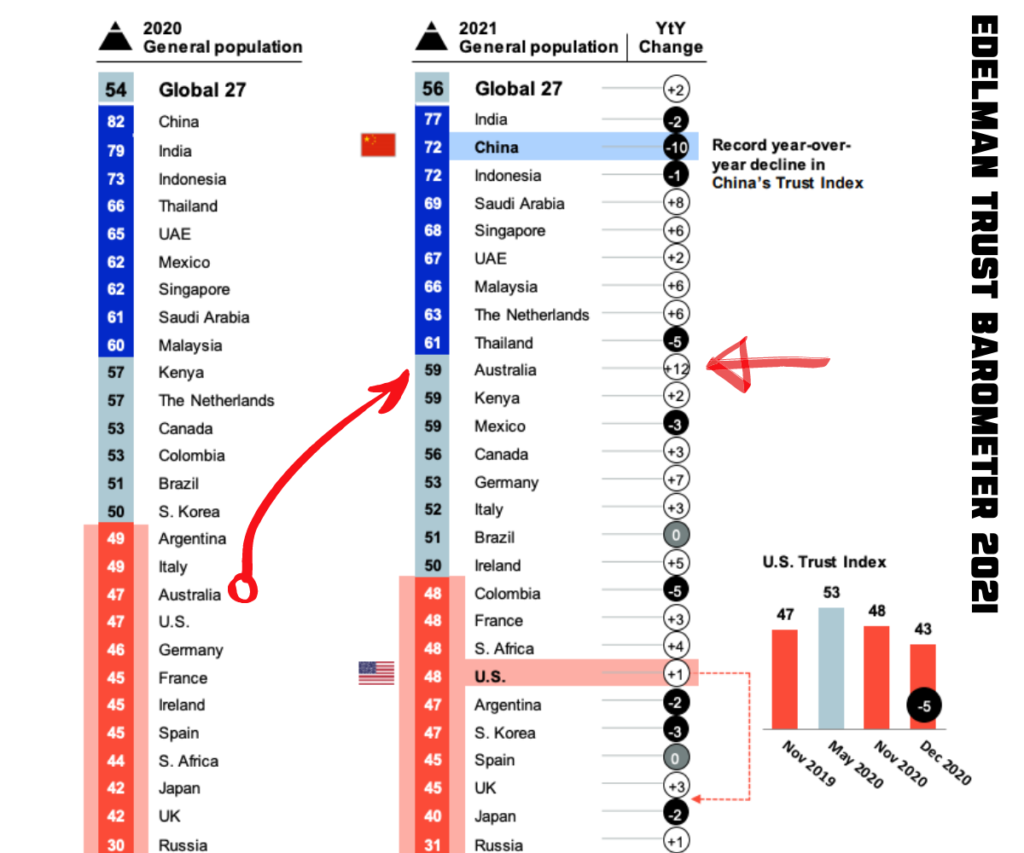
I’m not going to get bogged down in the political side of trust here, suffice to say, the Trump vs Biden election stoush had an incredible effect on the state of trust in the US. While trust overall with the US ‘mass population’ gained one point from 47 to 48 between November 2019 and November 2020, it crashed by five points between November and December 2020.
The drop in trust was most pronounced with Trump voters. Unsurprisingly, Trump voters are far less trusting of media than their Democrat counterparts (18 to 57, a whopping 39 point differential).
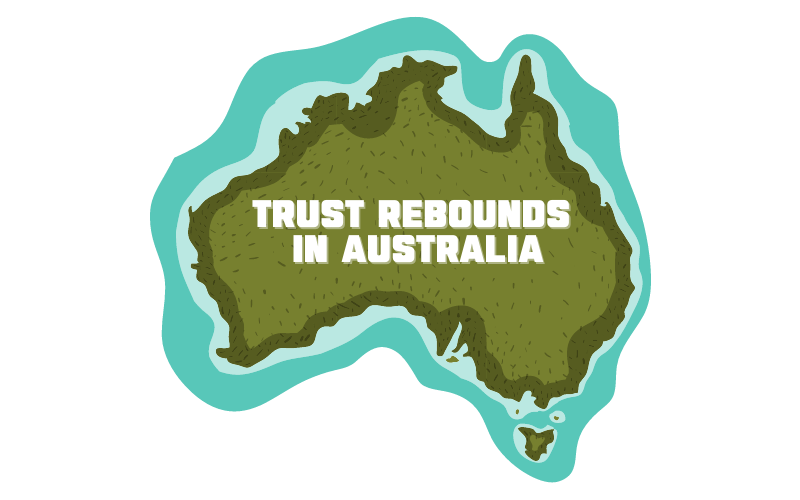
Trust rebounds in Australia
The greatest decline in trust was measured in China (down 10 points), while Australia recorded the biggest increase in trust (up 12 points). Despite this massive jump, Australia is trust ‘neutral’, sitting at 59 points overall, compared to China on 72. China has now dropped to second place in the trust stakes behind India on 77.
Australians recorded increased levels of trust in the key institutions of business, government, NGOs and the media, with strong improvement in all scores over the past year. No doubt in times of uncertainty we turn to the institutions that have served us generally well, all things considered, over the journey. To break this down further, trust in business in Australia jumped 11 points (to 63), +8 for NGOs (62), +17 for government (61) and +12 for the media (51).
If we compare these figures to the aggregated global trust figures, we see significant disparity:
- Business (+2)
- NGOs (-1)
- Government (+3)
- Media (+2)
Here are some of the statistics that jumped out at me:
- Societal leaders are not trusted to do what’s right, with CEOs, journalists, government and religious leaders all in ‘distrust’ territory, while ‘people in my community, ‘my employer’ and ‘scientists’ are trusted (we’re more likely to trust what is local, says Edelman).
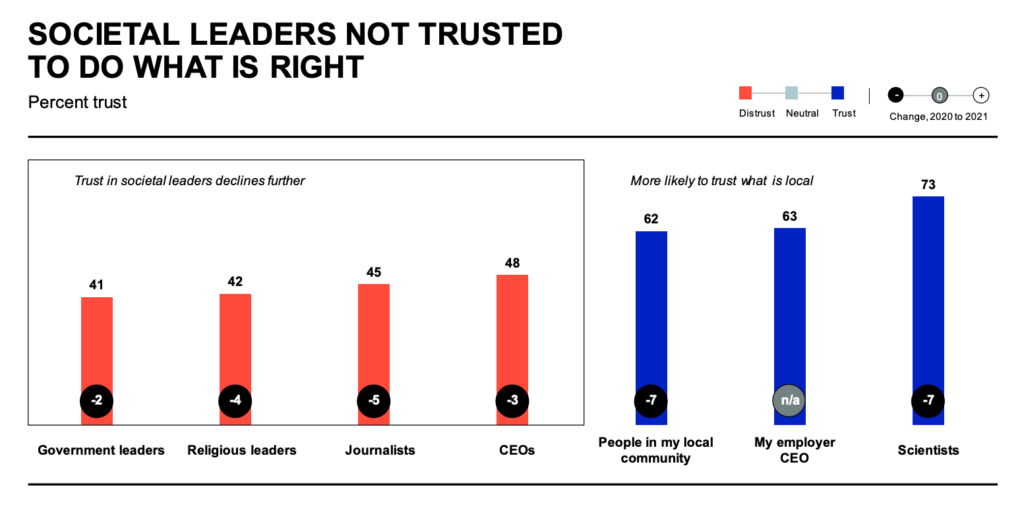
- A key reason why societal leaders are not trusted is because the public suspects them of lies and misinformation: 57 per cent of people believe our government leaders are purposely trying to mislead people by saying things they know are false or gross exaggerations, while 56 per cent of people think likewise of business leaders.
- One element of the Trust Barometer I look out for each year is the credibility of spokespeople for a company. As a general rule, the most credible sources of information about a company have always been (a) an academic expert, (b) a company technical expert, and (c) a person like yourself. In 2021, these are still the three highest trusted sources of information, although this year they have all taken a hit in the credibility stakes (-8, -10 and -7 respectively). It’s been that kinda year folks when enduring trusted sources of information crash in the credibility stakes!
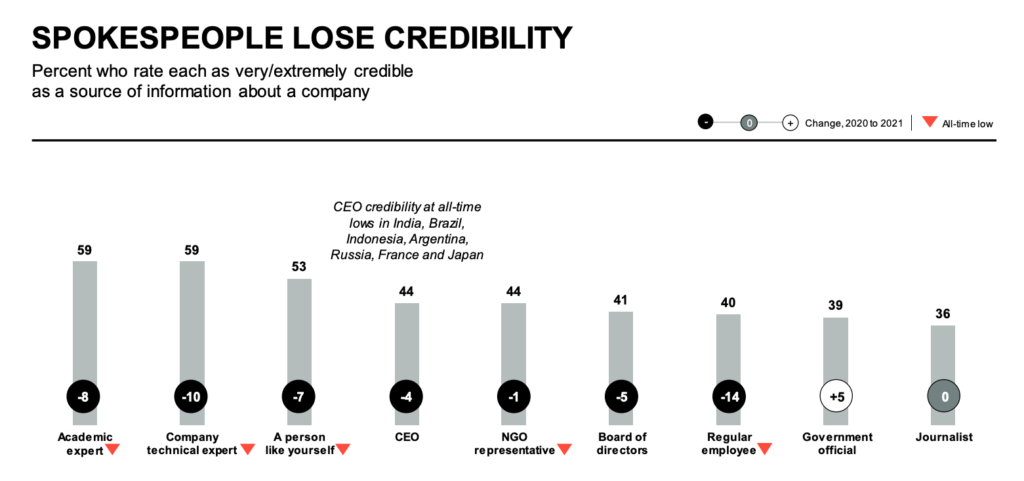
- Trust in all information sources is down across the board, with each category recording falls: search engines (-6 points to 56), traditional media (-8 to 53), owned media (-5, down to 41) and social media (-5 to 35). These are all record lows for these categories.
- Interestingly, employer media is the most believable source of information, Edelman reports (see below), with 61 points overall compared to media reports at 57, with ‘my social media’ languishing on 39 points.
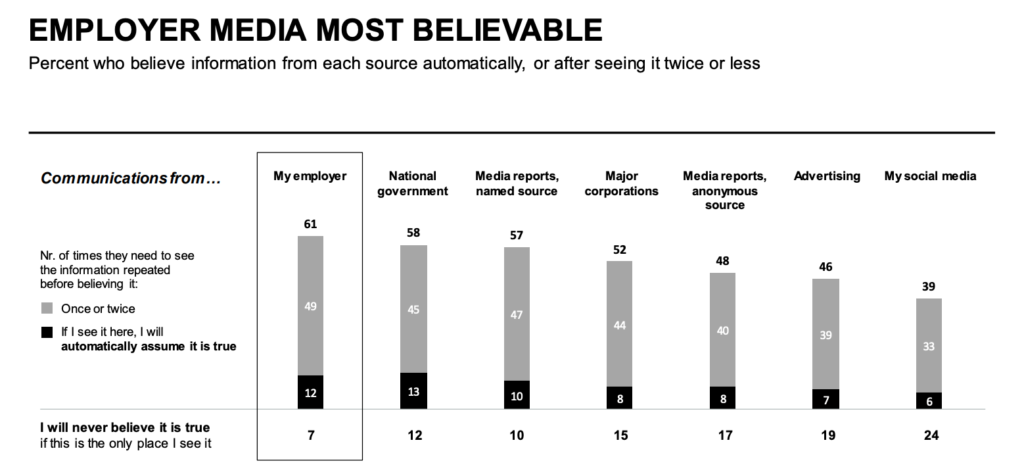
Some other interesting trends include:
- People’s priorities understandably have shifted significantly in several areas: Change in importance since the start of the year – (a) prioritising my family and their needs, up a whopping 56 points; (b) increasing my media and information literacy, up 46; (c) increasing my science literacy, up 43; and (d) being politically aware, up 39 points. Increased information literacy is likely to put pressure on government, business and the media to pick up their game in terms of transparency of their communications, including accuracy of the information they publish.
- A majority of the public (86 per cent) expect CEOs to publicly speak out about societal challenges such as pandemic impact, job automation, and local community issues. This is a trend we’ve seen bubbling along for some time (in line with consumers’ ability to aggregate their voice on social media) and the pressure on CEOs will only get greater post-COVID-19.
IN SUMMARY …
I’ve been following the Edelman Trust Barometer for more than a decade (since 2010 when I was employed as Director, Strategy & Innovation for Edelman Australia). I didn’t find too many surprises in this report, except perhaps sharp rises and falls – to be expected in a year as dramatic as 2020!


